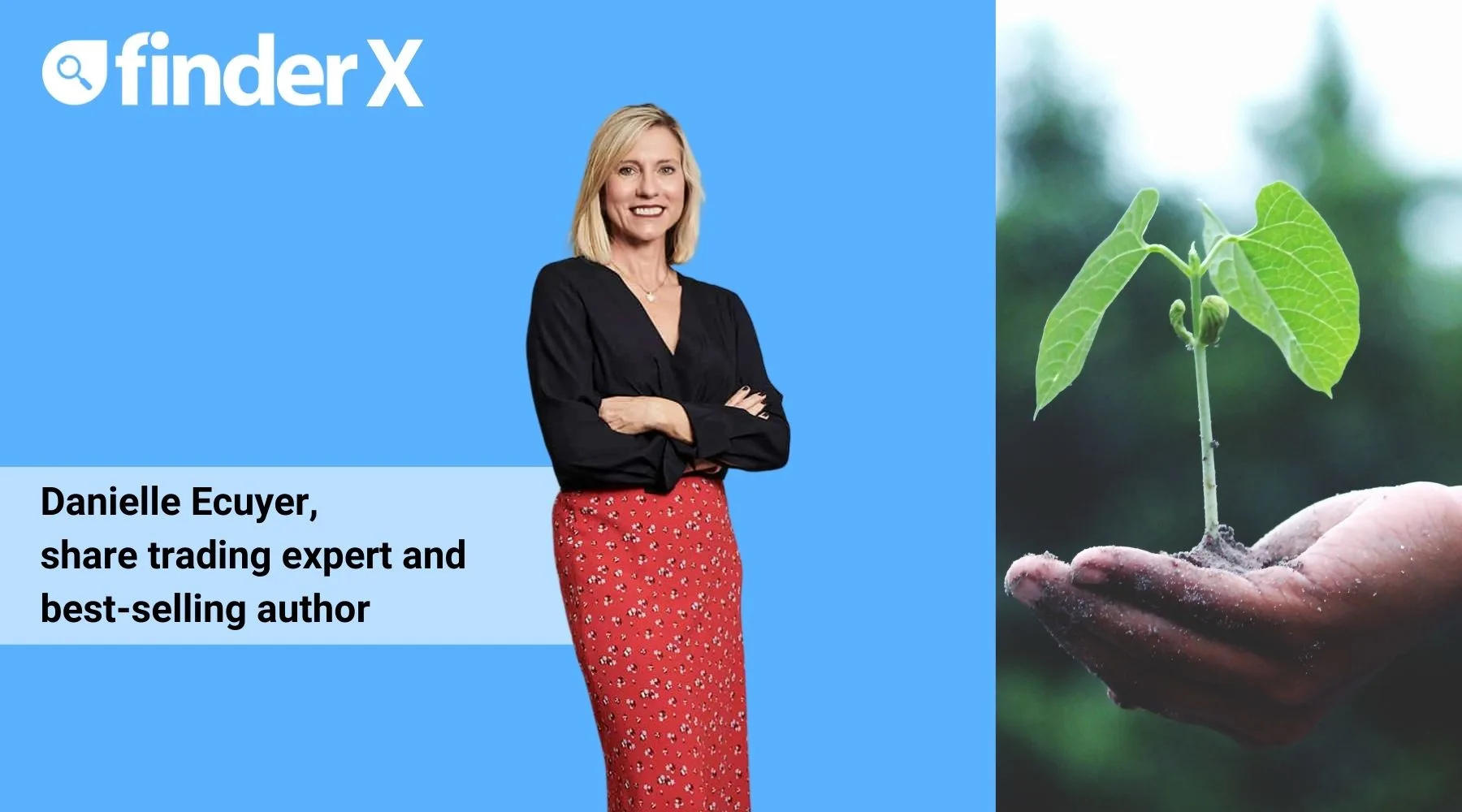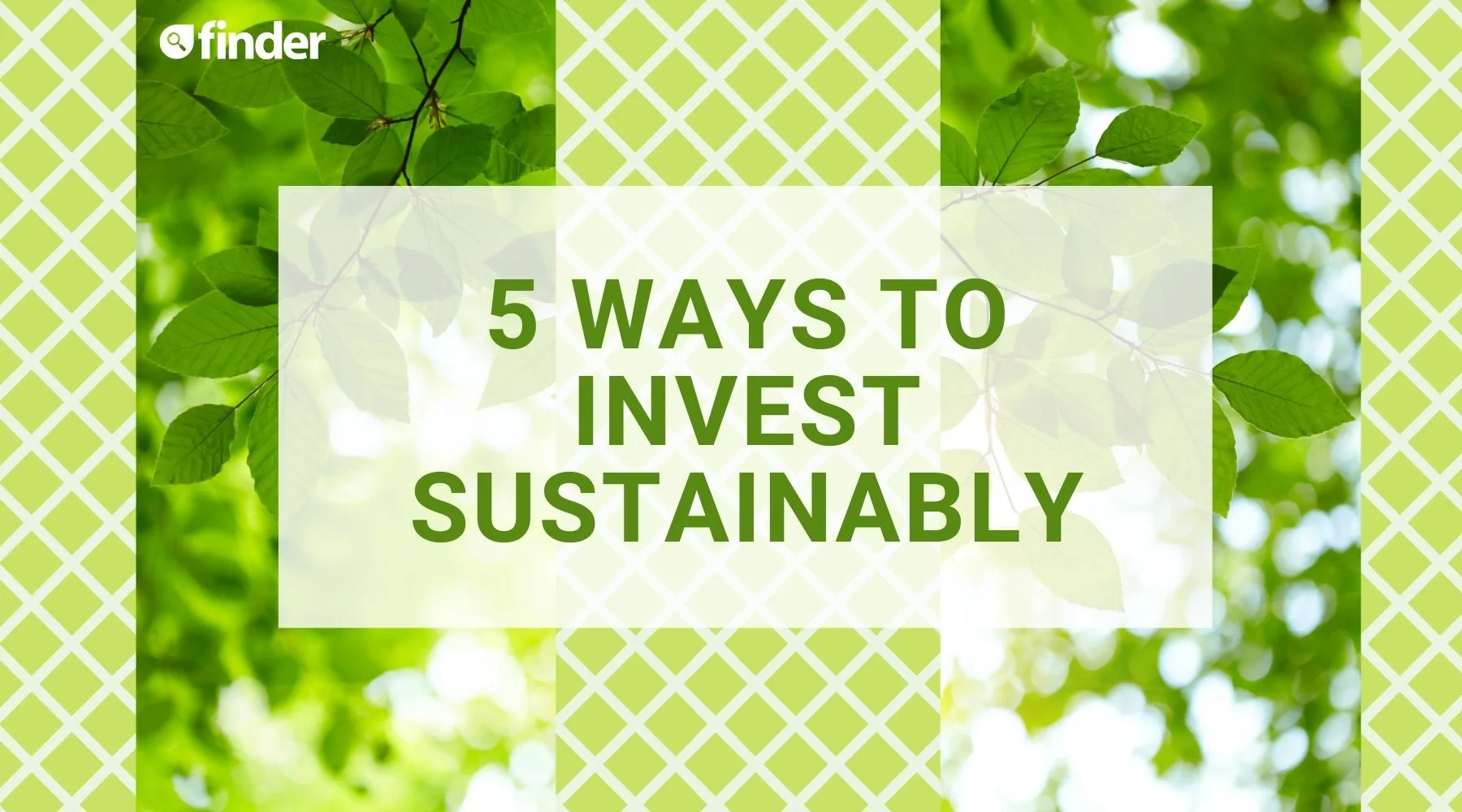I chose sustainable investments, and now I’m reaping big profits

Sustainable or socially responsible investing means considering environmental and social governance (ESG) factors, and it can lead to huge profits.
The industry is now worth over US$35.5 trillion, which is around the same size as the US stock markets (the Nasdaq and the NYSE combined).
By investing sustainably, you not only have the power to choose a purpose or outcome that is important to you, but more broadly, you are influencing how companies are shaping a world you want to see.
What sustainable investing used to be
Some 60 years ago, economist Milton Friedman opined the proposition of shareholder supremacy – this is the idea that a company's sole purpose was to operate for the benefits of shareholders.
That meant profits at any cost, and sadly the costs were often very high. Think smoking-related deaths, billion-dollar oil spills, asbestosis, chemical dumping and major deforestation.
The "greed is good" mantra may have been chic in the 1980s classic film, Wall Street, but by the noughties the world had moved on.
The Principles for Responsible Investment (PRI) were launched by United Nations Secretary General, Kofi Annan, on the New York Stock Exchange (NYSE) in 2006 with some 100 signatories to a "set of six principles to offer a menu of incorporating ESG issues into investment practice".
Since 2006, the 100 signatories have grown to over 4,000 and it covers investments exceeding US$130 trillion.
In 2015, the United Nations also developed the 17 Sustainable Development Goals to solve economic, social and environmental challenges by 2030.
These goals provide the benchmarks for companies to achieve their ESG objectives, including:
- Decarbonisation
- Sustainable water use and supply chains
- Improved human and labour rights
- Gender and racial equality
How times have changed!
In recent years, the focus on sustainability in the corporate world has only grown. In fact, studies have found that at least 84% of millennials believe that ESG is a central investing goal.
"When I first started looking at this in 2004, I was ridiculed as a 'tree hugger' and 'sandal wearer' and told categorically that there would be no job for me in the future. Oh, how things have changed."

There are multiple ways in which you can invest sustainably in 2021, depending on whether you prefer to invest directly (meaning you choose what shares you want to own) or indirectly (where you invest in managed funds or ETFs, exchanged traded funds).
Direct share investing
If you choose to invest directly in shares, there are 3 possible approaches:
1. Positive screening – buy stocks/companies that meet your sustainability objectives.
Tesla, a leading vertically integrated clean energy, battery and EV manufacturer is a great example, but there are multiple companies across many countries working profitably to solve and meet the sustainability factors. Look for companies that have ascribed to net zero emission targets, have diverse boards and work cultures as well as a philanthropic slant.
2. Negative screening – avoid stocks/companies that fail to meet your sustainability objectives.
This is reasonably straightforward; investors just avoid companies that they consider are not ESG or ethically sound. The normal targets are fossil fuel and coal companies, palm oil, alcohol and tobacco companies, or those that have been targeted for using compromised workforces such as the Uyghur community in China.
3. Activist investing – invest to advocate for change and positive ESG outcomes.
Shareholder activism has been criticised by some in the investing community, however many superannuation, pension funds and activist investors are using their shareholder vote to change board members to effect change. A notable example was the work of hedge fund Engine 1 to unseat 3 existing Exxon Mobil board members with their candidates. The aim was to move this oil stalwart to address climate change and net zero emissions.
Indirect share investing
Indirect investors have 2 main approaches open to them:
4. Buy sustainable ETF themes
For most investors this is probably the area where they go first to invest, and the category has grown exponentially. ETFs are a challenging category because there are so many choices.
Having recently caught up with David Bassanese from BetaShares, I found 3 of its ETFs interesting. The Global Sustainability Leaders (ETHI), the Australian Sustainability Leaders (FAIR) and the Climate Change Innovation ETF (ERTH), which is a great way to capture exposure to several companies working to address climate change.
5. Buy managed funds that invest sustainably
I am going to cite the example of Australian Ethical, which has grown since 1986 into a sizeable fund manager (including superannuation) with $6 billion under management and 66,000 customers. I like this example as the company is listed, so you have the choice of investing in the funds (starting at $100 per month) or buy the shares in the company (ticker code AEF).
What should you be wary of?
With more and more companies and investment products trying to attract sustainable and ethical investors, beware of the following:
- Greenwashing: Companies pretending to have or be moving to acquire environmental credentials, but in fact they are gaslighting investors.
- Pink washing: Companies that pay lip service or spruik marketing spiel about supporting LGBTQIA communities.
- Social washing: Companies marketing themselves as socially conscious on human, labour, gender and racial rights and equality but failing to implement change.
- Blue washing: Companies that have signed up to the UN Global Compact program (to achieve the Millennial and Sustainable Developments goals) but fail to act in accordance with the aims and goals of the compact.
There has been some criticism around costs of ESG ETFs.
On average, ESG funds have a cost of 0.2% versus 0.14% for passive indexed funds. I would argue that compared to managed funds, this remains a low-cost alternative.
Transparency and knowing what you are buying is important.
As always, do your research and satisfy yourself that your hard-earned savings are going into a company or financial product that meets your ESG objectives. Most funds should explain how the stocks are selected for an ETF.
From tree-hugger to big Tesla profits
I have a secret...
I was also once labelled a "tree hugger" and "greenie". But 14 years on, my sustainable tilt has led me to some of my most profitable investment decisions, including Tesla and Next Era Energy in the US.
It's no longer "not easy being green".
So what's stopping you from finding your sustainability mojo?
Danielle Ecuyer is a full-time investor with over 3 decades of professional and personal experience in equity markets. Major Street recently published her second book, Shareplicity 2 A guide to investing in US stocks markets, following the success of her first book, Shareplicity A simple approach to share investing.
Disclaimer: The views and opinions expressed in this article (which may be subject to change without notice) are solely those of the author and do not necessarily reflect those of Finder and its employees. The information contained in this article is not intended to be and does not constitute financial advice, investment advice, trading advice or any other advice or recommendation of any sort. Neither the author nor Finder has taken into account your personal circumstances. You should seek professional advice before making any further decisions based on this information.
Read more Finder X columns
-
All the big savings account interest rate rises: ING, AMP, Westpac + more
6 Feb 2026 |
-
Australian credit card debt soars 10% in a year: How can you escape the trap?
6 Feb 2026 |
-
4 cashback home loan offers to ease the pain of RBA rate hike
4 Feb 2026 |
-
Finder’s RBA Survey: Easing cycle ends as RBA delivers first rate hike since 2023
4 Feb 2026 |
-
Ubank Save is increasing its bonus rate up to 5.35% p.a.
3 Feb 2026 |
Ask a question
